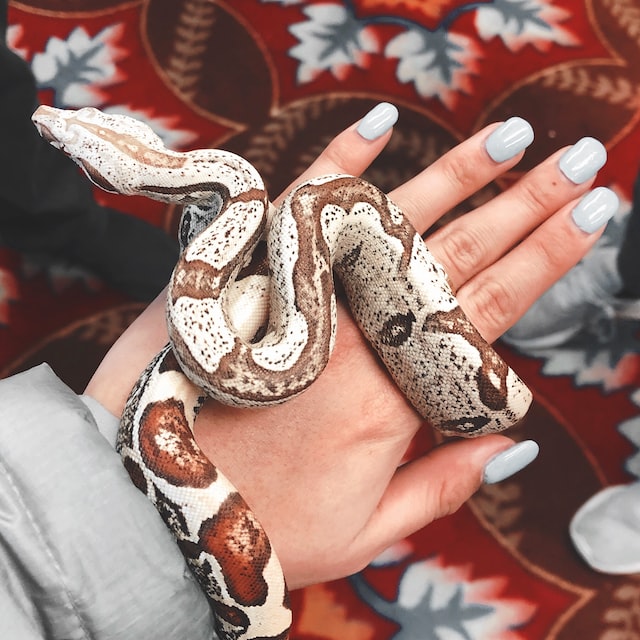How to Rent with Exotic Pets
With almost 50 percent of pets in America falling in the exotic pet category, many people are looking for pet-friendly rental properties. Are you an exotic pet owner looking to take one with you on your next rental? Whether it's a snake, ferret, or even a miniature pig, renting while having a unique pet can be tricky.
Making an educated decision about housing accommodations for you and your beloved family member requires careful consideration of the landlord's expectations and regulations surrounding owning that type of animal. In this blog post, we will discuss some tips for renting with exotic pets so that you can confidently make the best housing choice possible for yourself and your furry (or scaly) companion!
Why is it Hard to Rent with Exotic Pets?
Understanding the obstacles of renting with an exotic pet allows you to prepare accordingly and navigate them easily. Below are some reasons most exotic pet owners find it difficult to rent with exotic pets.

Most Landlords Don't Allow Exotic Pets
Most landlords do not allow exotic pets due to the potential damage they can cause. Some animals, such as snakes and ferrets, may be able to climb or dig into walls or baseboards, while others may require a certain amount of accommodation that most landlords would prefer not to provide. Pet insurance may also be a significant factor in the decision for some landlords.
You May Have to Pay an Extra Deposit
Most landlords will require you to pay an additional pet deposit if you want to rent with an exotic pet. This covers any potential damages resulting from having the animal on their property. The deposit amount varies depending on the type and size of the pet, so make sure you are prepared for this additional cost.
You May Have to Provide Proof of Vaccination and Insurance
Some landlords may also require that your exotic pet be vaccinated or insured before renting their property. This is to protect the landlord and yourself from any potential harm due to the pet. Again, these requirements will vary depending on the type of animal you have and the landlord's discretion.
Why Are Landlords Hesitant to Rent with Exotic Pets
Here are a few reasons most landlords shy away from accommodating pets.
Fear of Damage
Many landlords are hesitant to rent with exotic pets because they fear the potential damage that the animal may cause to the property. Some animals, like snakes and ferrets, can climb or dig into walls or baseboards. The landlord wants to protect their investment and ensure their property is in good condition for the next tenant.
Higher Liability
Exotic pets may present a higher liability to the landlord. Some animals are more likely than others to cause injury or disease, which could result in costly lawsuits against the landlord. Therefore, landlords must be aware of any potential risks when renting with exotic pets before making a decision. You may need proof of your pet's vaccinations and insurance for extra protection.
Potential Infestation
Another common concern among landlords is the potential for infestation. Exotic pets may carry parasites, mites, ticks, or fleas that could spread to other areas of the property and cause an infestation. This could lead to costly extermination fees and damage to the rental unit. It is vital to keep your pet clean and free of parasites so that this is not a concern for your landlord.
Noise Complaints
Some exotic pets, such as birds and reptiles, can be noisy. This can lead to noise complaints from neighbors or other tenants in the building. As such, landlords may be hesitant to rent with exotic pets because they do not want to deal with potential conflicts between tenants.
What to Keep in Mind When Renting with Exotic Pets
To ensure your house-hunting process is as hassle-free and smooth as possible, keep in mind the following.
Research Your Pet's Needs and Familiarize Yourself with Existing Laws
It is essential to do your research before renting with exotic pets. Make sure you understand their needs and how they may affect the property you are looking to rent. Additionally, you should check local laws and regulations to ensure that owning a pet is legal in the area where you are looking for a rental. You should also research the landlord's policies to ensure your pet is allowed in their rental.
Provide Necessary Documentation
Some cities need exotic pet owners to register their animals with the local government to provide proof of ownership. Additionally, if the landlord requires, you may need to provide proof of vaccinations or insurance for your pet. Ensure you have all the necessary documentation before signing a rental agreement.
Be Prepared to Pay Extra Costs
As mentioned above, many landlords will require an additional pet deposit or fee for exotic pets. Be prepared to pay these extra costs when renting with exotic pets to ensure your pet is allowed into the property. You may also need to pay extra for any damage your pet causes during the rental.
Know When to Walk Away
Sometimes, despite your best efforts, a landlord may still be hesitant to rent with exotic pets. If this is the case, knowing when to walk away and keep looking for another rental property is essential. Ultimately, landlords have the right to choose which tenants they rent with, and if they are not comfortable renting with a specific pet, you should respect their decision and look for another rental.
Overall, renting with exotic pets can be a complicated process, but it is not impossible. With the proper preparation and research, you can find a suitable rental for you and your pet. The most important thing to remember is that you should always be honest and up-front about your pet when looking for a home to avoid surprises later on.